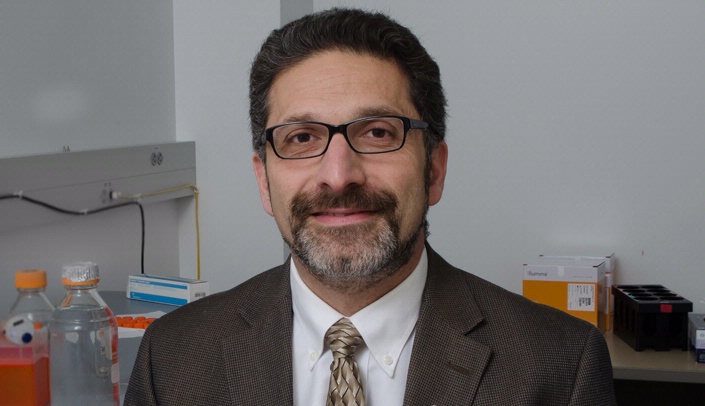Andre Kalil, M.D., UNMC Department of Internal Medicine, Division of Infectious Diseases, recently co-authored an invited commentary in the Dec. 14 issue of the Journal of the American Medical Association (JAMA). Co-author is Chanu Rhee, M.D., department of population medicine, Harvard Medical School.
The article, “Toward a More Nuanced Approach to the Early Administration of Intravenous Fluids in Patients With Sepsis,” describes the evaluation of an approach to give or not give fluids for patients with sepsis before arriving at the hospital. Sepsis is the body’s dysregulated response to infection that can lead to organ damage and death.
Major medical journals like JAMA invite recognized experts in the field to write a commentary/editorial on the most selective and influential articles. The aim is to provide a subject context, a balanced critique of new scientific findings, and the practical implications of the study results.
Dr. Kalil said the early administration of antibiotics remains the most effective therapy to stop sepsis progression. However, a more severe and advanced form of sepsis called septic shock, happens when the body dysregulation is associated with a dangerous lowering of the blood pressure, which can further impair the normal blood flow to vital organs and potentially result in severe organ damage and death.
In this situation, Dr. Kalil said, health care professionals also administer intravenous fluid resuscitation with the goal to restore the blood pressure and prevent organ damage.
“One of the unresolved problems with fluid resuscitation is regarding the amount of fluids needed for each patient’s situation,” Dr. Kalil said. “If too little or too much fluid is given, the patient with sepsis can be harmed.”
The study Drs. Kalil and Rhee wrote about by Daniel Lane, Ph.D., and colleagues, sheds light on this important issue.
“They studied patients who were suspected to have sepsis and were provided intravenous fluids by paramedics before arriving at the hospital, and evaluated their survival after being hospitalized,” Dr Kalil said. “They found that the survival benefits of fluids was dependent on the specific level of blood pressure — that fluids were beneficial only in patients who had an initial low blood pressure level. Otherwise, fluids were not beneficial or even harmful.
“The implications are that intravenous fluid resuscitation should be individualized for the needs of each patient, so there is no single treatment that fits all patients. A randomized clinical trial investigating the amount of intravenous fluids necessary for septic shock is being conducted in the U.S. at this time.”
